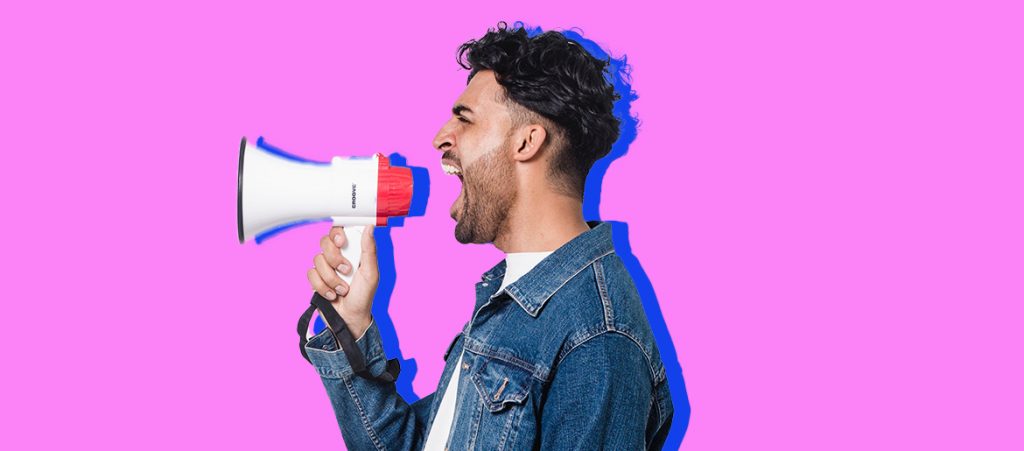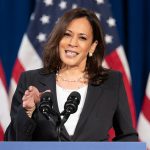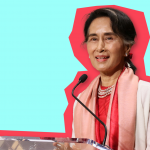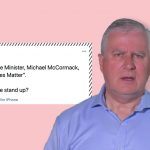
Outgoing President Donald Trump has been booted off just about every social media platform for his role in inciting a violent mob to take over the Capitol building. (Seriously, he’s not even allowed a Spotify account!) Soon after, Parler, an alt-right social media network, was banned from the app stores on Apple and Google app, and had it’s hosting services terminated by Amazon. Conservatives in both the US and Australia are saying these events signal the death of free speech – a big, scary claim.
Here’s the thing: to understand whether the ‘right’ to free speech is really under attack, you have to understand what freedom of speech means, and how it works. It’s not as clear-cut as you might think.
Free Speech in Australia
The “right to free speech” doesn’t exist in Australia – there’s an entire chapter on this in our book, How to Win Every Argument. There is no protection or provision for ‘free speech’ in our constitution – at least not for what most people mean when they talk about free speech.
For Aussies, the closest thing we’ve got is an implied freedom of political expression. Essentially, it means the Government cannot create laws that restrict people from communicating about political topics, because our representative system requires that political information to be shared so voters can make informed decisions.
The precedent for that implied ‘right’ was set by the 1992 High Court case, Nationwide News Pty Ltd vs Wills – you can read a short, snappy summary here.
However, the freedom of political expression isn’t a ‘right’ of Aussie citizens per se – it’s a specific condition on the Government. It does not apply to everything: you can’t use it as a defense in a defamation case, and it does not mean you can say whatever you like without consequence.
In Australia, the Racial Discrimination Act 1975 also dictates what you can and can’t say. The Act makes it a crime to publicly offend or intimidate someone based on their race. While only around 5% of claims make it to the courts, there have been some successful cases that show the nature of comments deemed unlawful by the Act.
Hello I am brand new to Twitter, what are you guys up to
— John Barron (@barronjohn1946) January 9, 2021
Free Speech in the US
In the States, free speech is an entirely different beast. The much-discussed First Amendment to the US Constitution provides a clear protection for freedom of speech: “Congress shall make no law… abridging the freedom of speech, or of the press; or the right of the people peaceably to assemble, and to petition the government for a redress of grievances.”
Despite being an explicit protection, the First Amendment is often misinterpreted. Similar to Australia’s implied freedom, this is a restriction on the laws that the Government can make. It’s not a blanket approval for all speech, and it doesn’t apply to private businesses like social media and tech platforms.
There are restrictions on the First Amendment too – there are six categories of ‘unprotected speech’, which includes incitement of “imminent lawless action”, true threats, and speech used as part of criminal conduct. The US Government is allowed to regulate and restrict the content of speech that falls into these categories, so long as it is ‘even-handed’.
Related Posts
What About Social Media?
We’ve said it before, and we’ll say it again: protections for free speech do not protect us from being criticised, called out or suffering consequences. In most cases, it’s really only censorship if you’re being jailed or silenced by the Government.
Free speech also doesn’t mean that you are guaranteed a platform to say what you want. We agree to the terms and conditions of social media platforms when we sign up to them, which means they are allowed to remove any account which breaks their specific rules. So long as those terms and conditions are not unlawful, they are free to enforce them as many now have against Trump.
There are still legitimate concerns over how social media platforms police content. Instagram has long been accused of implementing rules that unfairly impact the accounts of sex workers, and penalising fat, black women more strictly than skinny, white ones. Big tech companies are so far from perfect. It’s worth thinking about whether the people outraged about the restrictive policies of tech companies right now have also supported the other groups campaigning for transparency.
Ultimately, even if a person or group is being discriminated against by a tech platform, this is not automatically the same thing as impeding free speech. Your free speech is only being impacted if the Government is legislating to restrict it.
Did you know there is a chapter on free speech in our book How to Win Every Argument? It’s your cheatsheet to understanding the 15 biggest topics facing the world today. Get a copy from $9.99.








